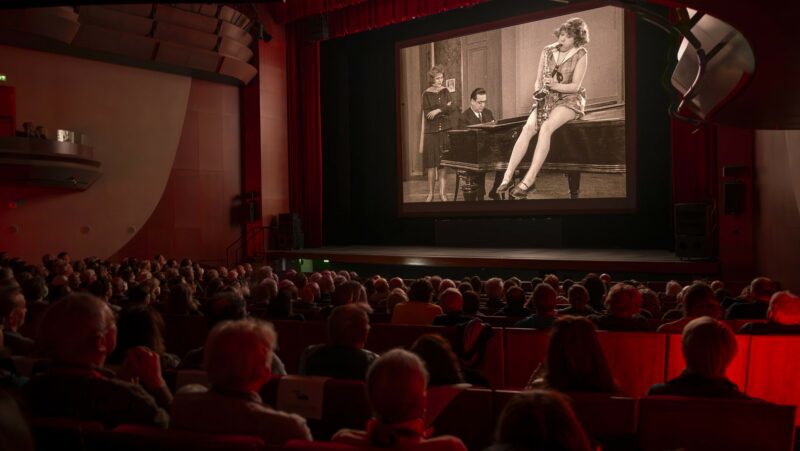At the Fondation Jérôme Seydoux-Pathé from November 6th-26th:
“Le Giornate del Cinema Muto, sélection du festival de Pordenone 2024”
The Pordenone Silent Film Festival returns to Paris thanks to the partnership begun in 2018 with the Fondation Jérôme Seydoux-Pathé, a key player in the world of film conservation and silent film heritage. Under the heading “Le Giornate del Cinema Muto, sélection du festival de Pordenone 2024”, a specially-chosen range of titles presented at the recently concluded 43rd edition of the Pordenone festival are to be shown in the Fondation’s cinema from November 6th to 26th. 15 films will be seen by the Paris public, all with live musical accompaniment and each screened multiple times, for a total of 30 presentations.
Festival director Jay Weissberg, who curated the selection together with the Fondation Seydoux-Pathé and will be in the French capital from November 20th-26th, points out, “among the festival’s key goals is to broaden areas of research on silent cinema, breaking down boundaries so that countries, themes, directors and genres that are usually overlooked are properly integrated into film history and film programming. This is the only way to truly understand the art form and the period in which it was made.” Crucial in this regard were retrospectives in October devoted to Uzbekistan and Latin America, which are also given priority in the Paris program. Of the former, two films will be screened – Mikhail Doronin’s Ikkinchi Xotin (The Second Wife, 1927) and Oleg Frelikh’s Eshon Qizi (The Daughter of the Saint, 1931) – which powerfully illustrate the condition of women in a country in transition, suspended between tradition and the dictates of the Soviet regime. To offer an overview of the film industries in Latin America, inevitably influenced by US and European productions but also seeking a way to shed the cloak of colonialism to find their own voice, six films will be shown, including features, shorts and fragments, from Argentina, Brazil, Colombia and Mexico.
Other sections from Pordenone haven’t been forgotten: Dinty (1920) and Song (1928) come from the festival’s series dedicated to the Chinese-American star Anna May Wong, while the Canon Revisted section is represented by two classics, Nino Oxilia’s Rapsodia satanica (1915-1917) and Ernst Lubitsch’s Three Women (1924). Another two features represent the Restorations and Redicoveries section: Karel Lamač’s sparkling comedy starring Anny Ondra, Saxophon-Susi (1928), one of the absolute hits of this year’s edition, and Maurice Elvey and Henry Otto’s campy spectacle Folly of Vanity (1925). The series devoted to celebrated art director Ben Carré, which traced his career as set designer from France to Hollywood, is represented in Paris by Étienne Arnaud’s La mort de Mozart (1909) and Maurice Tourneur’s The Pride of the Clan (1917), starring Mary Pickford, while six shorts directed by D.W. Griffith in 1908, brought back to life thanks to the Film Preservation Society in collaboration with the Library of Congress, will allow Paris audiences to appreciate the extraordinary quality of images hitherto visible only in compromised copies. A Swedish documentary from 1926 renews the fascination with the landscapes of the Far North, while the program devoted to Sicily will feature Louis Mercanton’s L’appel du sang (The Call of the Blood, 1919), shot largely in and around Taormina. The film, based on the novel by English writer Robert Hichens and starring Ivor Novello, is included among the events held in conjunction with the Festival des Fiertés, a festival of LGBTQIA+ culture and identities.
For further information and the screening schedule, click HERE


 Italiano
Italiano
Recent Comments